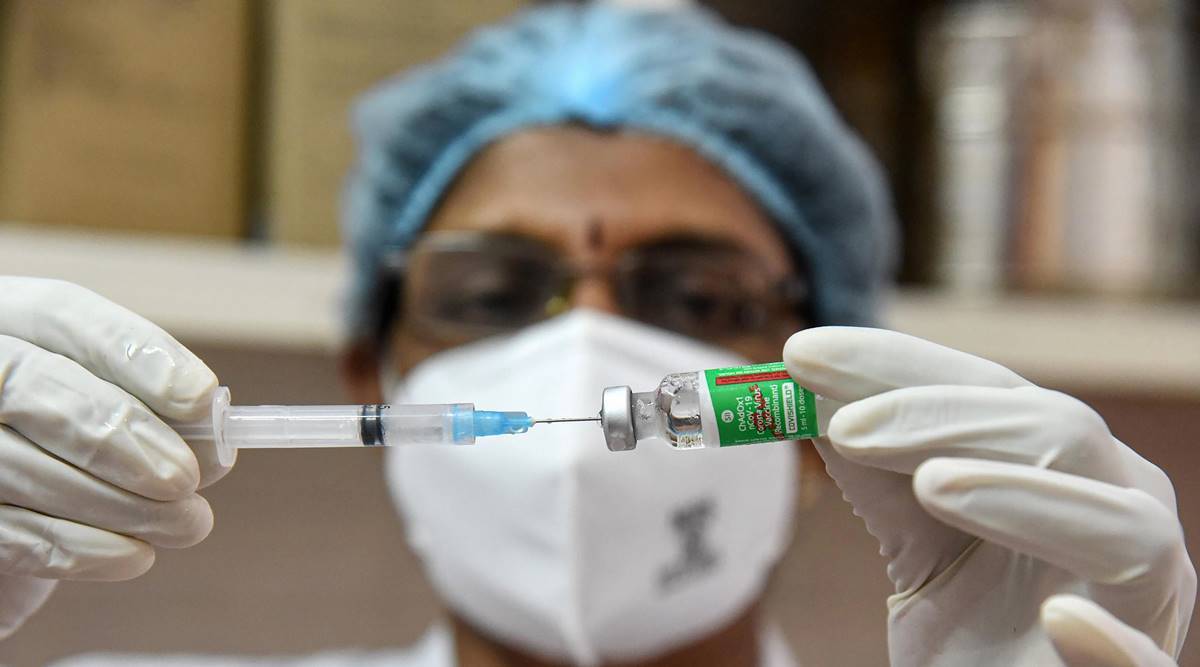 Mumbai crossed 10 lakh vaccinations and plans to conduct at least a lakh vaccinations every day(file)
Mumbai crossed 10 lakh vaccinations and plans to conduct at least a lakh vaccinations every day(file) The fast rise in Covid-19 cases, coupled with the discovery of certain mutations of interest, has led to an intensified drive for vaccination in the state. Maharashtra plans to vaccinate four lakh people in a day once the second dosing of co-morbid population and senior citizens begins next month. On Thursday 35,952 new Covid-19 cases were detected, the highest single-day count in Maharashtra since the pandemic broke last March.
“We will try to reach 3.5 lakh people per day in a week’s time,” said Maharashtra Health Secretary Dr Pradeep Vyas, adding that the interval of 6-8 weeks between two doses will help vaccinate more people. “When the second dose starts, numbers per day will increase beyond four lakh,” he said. The second dosing for people aged over 60 years and those with co-morbidities will start from mid-April.
Maharashtra has crossed the 5 million vaccination mark, the highest across India, followed closely by Rajasthan at 4.9 million. Mumbai crossed 10 lakh vaccinations and plans to conduct at least a lakh vaccinations every day. On Wednesday, state recorded 2.70 lakh immunisations and Mumbai 34,633 vaccinations. As daily deaths due to Covid-19 rise, state officials plan a fast escalation in vaccine coverage. On Thursday Maharashtra reported 111 deaths due to coronavirus.
From April 1, those aged above 45 years, with or without comorbidities, are eligible for vaccination. Dr Vyas said 30 per cent of the state’s population, or over 3 crore people, is estimated to be aged above 45 years and will be eligible for the next phase of vaccination.
Currently, Maharashtra is vaccinating 2.5 lakh people a day. The decision to further ramp up vaccinations comes with the National Centre for Disease Control’s announcement that 15-20 per cent of samples sequenced from Maharashtra showed double mutation, E484Q and L452R, in the Sars-Cov-2 virus. Most cases were limited to Nagpur. In Mumbai, 22 of 223 samples sent for genome sequencing had the UK variant. While the Union Health Ministry has not linked the sudden surge in cases with the mutation, state officials plan to use vaccination as a tool to break the chain along with ‘testing, treating and tracking’ model.
“A few days ago, the NCDC had asked us for details of people whose samples were sent for genome sequencing. We asked them if there needs to be a change in our Covid-19 strategy and if mutations are of concern. They said we must follow more or less what we are already doing in our Covid-19 management and there is no eminent cause of worry,” a senior health official said. Officials at the Nagpur Municipal Corporation, however, said the latest spike in cases is worrying, as despite strict enforcement of mask habit, there seems to be a spread in viral infections unlike last year.
With limited health staff, state health officials said resources are stretched in ensuring both, daily vaccinations and Covid-19 treatment, are smoothly undertaken.
The state has immunised 90 per cent (9.40 lakh) of healthcare workers and 80 per cent (7.14 lakh) of registered frontline workers. Of the 60-plus age group, 22.29 lakh have been immunised and 5 lakh of the co-morbid population have been immunised, which is one-fourth of estimated target population.
“We plan to increase the number of vaccination centres next month, when daily vaccinations increase,” said state immunisation officer Dr DN Patil. Maharashtra has over 3,200 vaccination centres.
Patil said in primary health centres, vaccinations are being conducted twice or thrice a week so that staff can cater to other services during remaining week. “Based on 2.5 lakh vaccinations a day, we have vaccine stock that will last us for next 10 days,” Patil said. He added that few districts that are reporting shortage of vaccine need to manage their logistics better and demand adequate stock of vaccine doses in advance.
“Once those aged above 45 are allowed to get vaccinated, the number of people visiting centres will increase. We will scale up centres as per the need,” Patil added.
- The Indian Express website has been rated GREEN for its credibility and trustworthiness by Newsguard, a global service that rates news sources for their journalistic standards.

